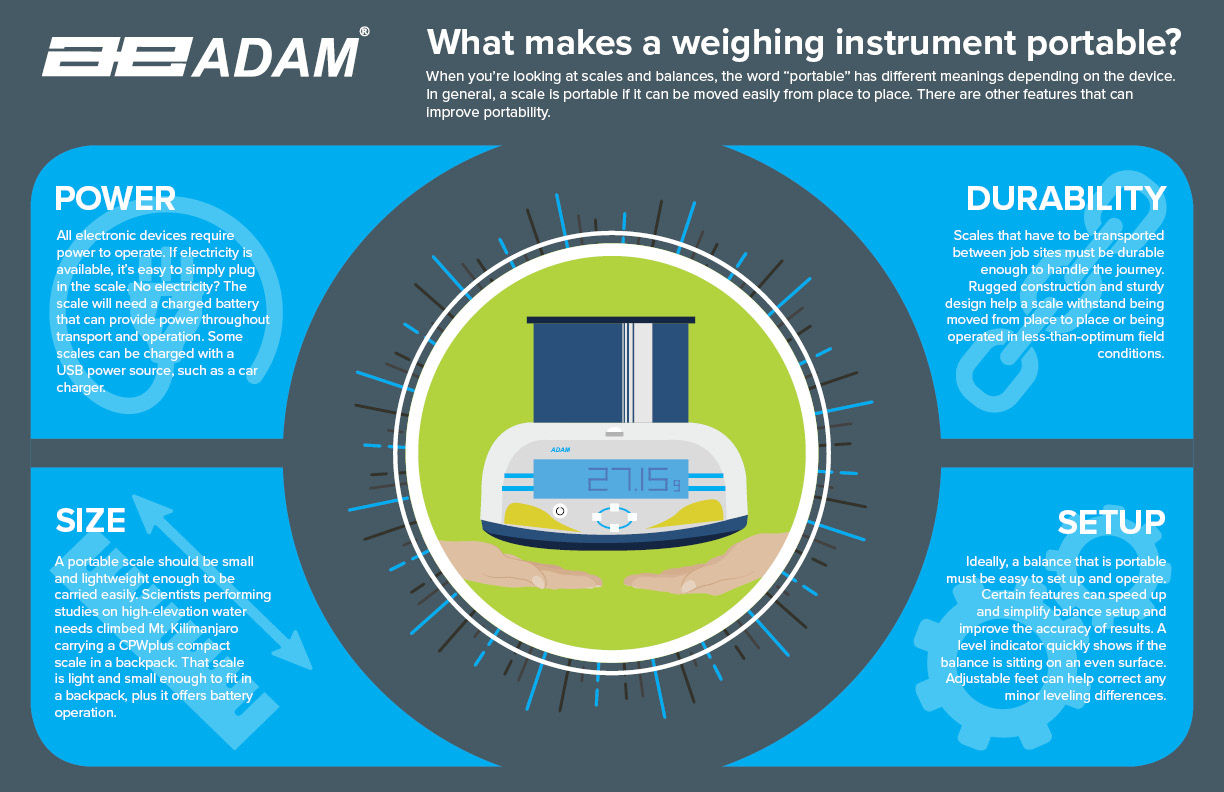When you’re looking at scales and balances, the word “portable” has different meanings depending on the device. In general, a scale is portable if it can be moved easily from place to place. There are other features that can improve portability:
Power
All electronic devices require power to operate. If electricity is available, it’s easy to simply plug in the scale. No electricity? The scale will need a charged battery that can provide power throughout transport and operation. Some scales can be charged with a USB power source, such as a car charger.
Durability
Scales that have to be transported between job sites must be durable enough to handle the journey. Rugged construction and sturdy design help a scale withstand being moved from place to place or being operated in less-than-optimum field conditions.
Size
A portable scale should be small and lightweight enough to be carried easily. Scientists performing studies on high-elevation water needs climbed Mt. Kilimanjaro carrying a CPWplus compact scale in a backpack. That scale is light and small enough to fit in a backpack, plus it offers battery operation.
Setup
Ideally, a balance that is portable must be easy to set up and operate. Certain features can speed up and simplify balance setup and improve the accuracy of results. A level indicator quickly shows if the balance is sitting on an even surface. Adjustable feet can help correct any minor leveling differences.
Click here to download your portable balances pdf.


